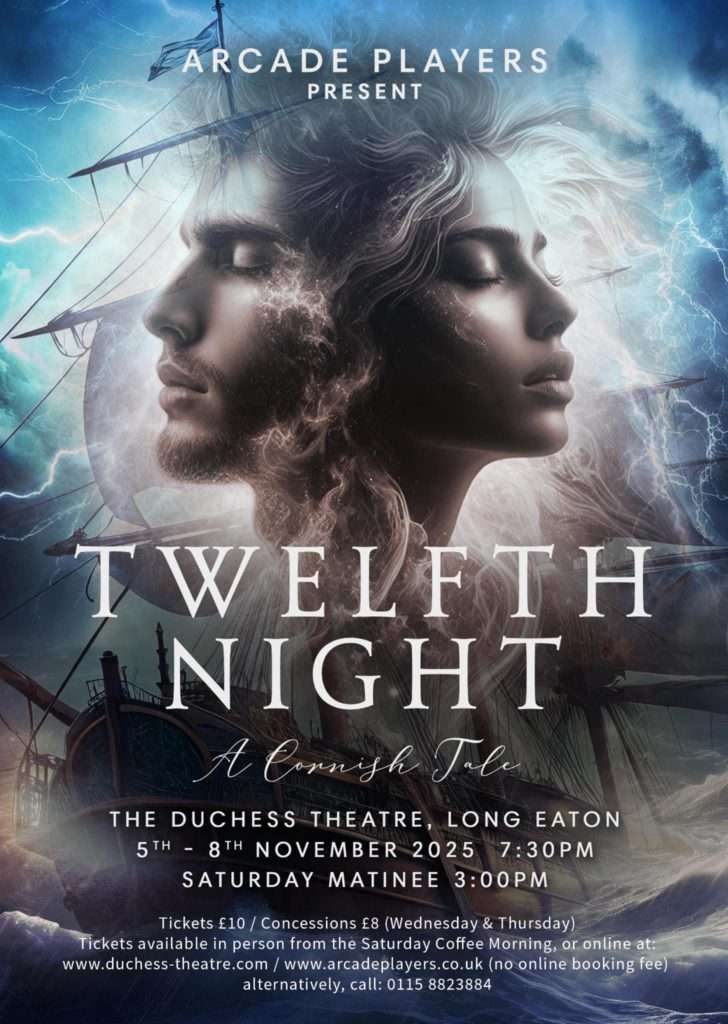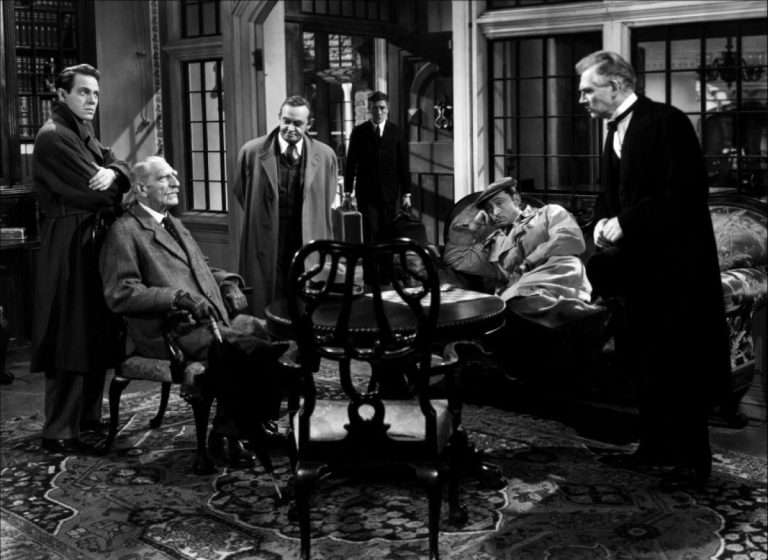Welcome to Twelfth Night: Your Friendly, In-Depth Guide from Arcade Players
Hello, friends and fellow theatre lovers! We hope you are having a fantastic day. If you are reading this, you are probably curious about Shakespeare’s Twelfth Night, or maybe you are thinking about joining us for a performance here at Arcade Players in Long Eaton. Whether you are a lifelong Shakespeare fan, a newcomer, or just looking for a fun night out with friends, this guide is for you. We are excited to take you on a journey through the world of Twelfth Night, answer all your burning questions, and hopefully inspire you to grab your Twelfth Night tickets. Let’s dive in together and see what makes this play such a joy for audiences and performers alike.

Meet the Characters: Who’s Who in Twelfth Night?
Before we jump into the story, let’s get to know the cast of characters you will meet on stage. Twelfth Night is full of lively personalities, each with their own quirks and secrets. Here is a quick introduction to the main players:
- Viola: Our clever, compassionate heroine. After surviving a shipwreck, she disguises herself as Cesario and finds herself caught in a web of love and mistaken identity.
- Sebastian: Viola’s twin brother, believed to be lost at sea. His unexpected arrival in Illyria leads to plenty of comic confusion.
- Duke Orsino: The lovesick ruler of Illyria. He is deeply infatuated with Olivia and enlists Cesario (Viola in disguise) to help win her heart.
- Olivia: A noblewoman mourning her brother. She has sworn off romance, but her resolve is tested when she meets Cesario.
- Malvolio: Olivia’s serious and rather self-important steward. He becomes the target of a hilarious prank that turns his world upside down.
- Sir Toby Belch: Olivia’s fun-loving uncle. He enjoys a good party and is always ready for a bit of mischief.
- Maria: Olivia’s sharp-witted maid who masterminds the plot against Malvolio.
- Sir Andrew Aguecheek: Sir Toby’s not-so-bright friend who dreams of marrying Olivia.
- Feste: Olivia’s fool, but don’t let the title fool you. Feste is wise, witty, and always ready with a song or a clever observation.
- Antonio: A devoted sea captain who risks everything for Sebastian.
- Fabian: Another of Olivia’s servants, who joins in the fun and games around Malvolio.
- Valentine and Curio: Loyal attendants to Duke Orsino.
- Captain: The kind sailor who helps Viola after the shipwreck.
We hope you will enjoy meeting them all. Each character brings something special to the story, and together, they create a world full of laughter, longing, and surprises.
Why Is It Called Twelfth Night?
Here is a fun bit of history. The title “Twelfth Night” refers to the twelfth night after Christmas, a time of celebration and merrymaking in Shakespeare’s England. People would throw parties, play games, and sometimes even swap roles for the evening. It was a holiday when the usual rules did not apply, and everyone could let loose and have some fun. Shakespeare captures that festive spirit in this play, filling it with disguises, surprises, and a sense that anything can happen. It is the perfect setting for a story where nobody is quite who they seem, and every day feels like a holiday.
What’s the Story? (Spoiler-Free!)
Let’s set the scene. Twelfth Night begins with a shipwreck. Viola washes ashore in Illyria, believing her twin brother Sebastian has drowned. To protect herself, she disguises herself as a young man named Cesario and finds work with Duke Orsino. Orsino is hopelessly in love with Olivia, but Olivia is not interested in his advances. Instead, Olivia finds herself drawn to Cesario, not realising that Cesario is actually Viola in disguise. Meanwhile, Sebastian is alive and well, making his own way to Illyria.
As if that were not enough, there is a subplot bubbling away in Olivia’s household. Sir Toby, Maria, Sir Andrew, and Fabian team up to play a trick on Malvolio, Olivia’s pompous steward. They convince him that Olivia is in love with him, leading to some of the play’s funniest and most memorable scenes.
The story is a whirlwind of mistaken identities, secret crushes, and unexpected reunions. Will everyone end up with the right partner? Will the truth come out in the end? You will have to see the show to find out.
Twelfth Night and the Joy of Love in All Its Forms
One of the things we love most about Twelfth Night is how it celebrates love in all its glorious, messy, and unpredictable forms. Viola’s disguise as Cesario creates a love triangle that is both funny and touching. Olivia falls for Cesario, Orsino confides in Cesario, and Viola is secretly in love with Orsino. The play gently pokes fun at how love can make us all act a little foolish, but it also reminds us that love is worth the risk.
Antonio’s relationship with Sebastian is another highlight. Antonio’s loyalty and affection for Sebastian are deep and genuine. Shakespeare leaves it up to us to decide whether their bond is romantic or platonic, but there is no denying the warmth and devotion between them.
Twelfth Night invites us to look beyond labels and see the real people—and real feelings—underneath. It is a celebration of love in all its diversity, and that makes it feel fresh and relevant, even today.
Is Twelfth Night an LGBTQ Play?
This is a question that sparks a lot of conversation, and for good reason. With Viola dressing as Cesario and both Olivia and Orsino developing feelings for her, the play explores gender and attraction in a way that feels surprisingly modern. Many productions today highlight these themes, and audiences of all backgrounds have found meaning and representation in the story. Twelfth Night encourages us to question assumptions and to celebrate the many ways love can surprise us.
What’s the Moral of Twelfth Night?
If you ask us, Twelfth Night is about embracing who you are, forgiving mistakes, and opening your heart to joy—even when it arrives in unexpected ways. The characters learn that happiness often comes from letting go of pride and seeing each other for who they truly are. There is also a gentle reminder not to take ourselves too seriously. Even the most dignified characters end up in some pretty silly situations, and that is part of the play’s enduring charm.
Why Does Olivia Cover Her Face?
Olivia is in mourning for her brother, and she has promised to keep herself out of the romantic spotlight for seven years. Her veil is a symbol of her grief and her determination to avoid love. But as we all know, love has a way of sneaking up on us when we least expect it. When Cesario arrives, Olivia’s resolve starts to crumble. Her journey from sorrow to joy is one of the many reasons audiences connect with her character.
Is Antonio in Love with Sebastian?
Antonio’s devotion to Sebastian is one of the play’s most touching relationships. He risks his safety to help Sebastian, speaks about him with warmth, and shows a loyalty that goes beyond friendship. Shakespeare leaves their relationship open to interpretation, and different productions may emphasise different aspects. Whether you see it as romantic or platonic, Antonio’s affection for Sebastian is sincere and moving.
Why Was Twelfth Night Ever Banned?
Twelfth Night has not faced widespread bans, but its themes of gender disguise and same-sex attraction have caused controversy in some places and times. In more conservative eras, some people were uncomfortable with the play’s exploration of identity and love. Today, we celebrate Twelfth Night for its joyful embrace of difference and diversity. Its message of acceptance and understanding feels just as important now as it did when Shakespeare first wrote it.
Why Does Viola Call Herself a Poor Monster?
Viola finds herself in a difficult position. She is pretending to be someone she is not, caught between her feelings for Orsino and Olivia’s feelings for her. When she calls herself a “poor monster,” she is expressing the confusion and heartache caused by her disguise. Who has not felt a little lost or misunderstood at times? Viola’s honesty and vulnerability are part of what makes her such a relatable and beloved character.
More to Explore: Themes, Music, and Laughter
Twelfth Night is packed with themes that still ring true today. It is about the freedom to be yourself, the power of forgiveness, and the beauty of second chances. Music weaves through the story, thanks to Feste’s songs and the characters’ love of celebration. And of course, there is plenty of comedy—from witty banter to slapstick antics. Whether you are laughing at Sir Toby’s mischief or groaning at Malvolio’s misfortune, there is never a dull moment.
The play also explores the idea of festivity and the temporary suspension of social order. The Twelfth Night holiday itself is a symbol of this, and Shakespeare uses it as a backdrop for a story where the usual rules do not apply. Disguises and role reversals challenge societal norms and invite us to see the world from a new perspective.
The Role of Comedy in Twelfth Night
Comedy is at the heart of Twelfth Night. Shakespeare uses humour to entertain and to offer gentle critique. The play’s comedic elements range from witty dialogue and clever wordplay to physical comedy and farce. Sir Toby Belch and Sir Andrew Aguecheek provide much of the laughter with their antics, while the prank on Malvolio is a classic example of comedy that also makes us think about kindness and cruelty.
Through its comedy, Twelfth Night encourages us to laugh at human weaknesses while also recognising the importance of empathy and forgiveness. It is a reminder that life is better when we do not take ourselves too seriously and when we are willing to laugh together.
The Enduring Legacy of Twelfth Night
Twelfth Night’s influence extends far beyond the stage. Its themes of love, identity, and transformation have inspired countless adaptations in literature, film, and popular culture. The play’s memorable lines and characters are frequently quoted and referenced, showing its lasting impact.
For amateur and professional theatre groups alike, Twelfth Night offers a rich canvas for creative interpretation. Directors and actors find endless possibilities in its blend of comedy and emotion, while audiences are drawn to its universal truths and relatable characters.
Historical Context and Theatrical Significance
Twelfth Night was likely written in 1601 or 1602 and first performed as part of the festivities for the close of the Christmas season. The play’s setting in Illyria, a distant and somewhat fantastical land, allowed Shakespeare to explore themes of transformation and freedom from societal constraints. The use of twins and mistaken identity was a popular device in Elizabethan theatre, appealing to audiences’ love of intrigue and surprise.
The play’s structure, with its mix of high comedy, romantic entanglements, and moments of genuine pathos, showcases Shakespeare’s mastery of the comedic form. Twelfth Night also stands out for its strong female lead in Viola, whose intelligence and emotional depth drive much of the action. The play’s enduring popularity in both professional and amateur theatre is a testament to its adaptability and the richness of its language and characters.
Twelfth Night and the Community: The Power of Live Theatre
Producing Shakespeare’s Twelfth Night is about more than just performing a classic. It is about bringing people together. At Arcade Players, our mission is to make live theatre accessible to everyone in Long Eaton and beyond. Each performance is a celebration of creativity, teamwork, and community spirit.
Live theatre offers a unique experience that cannot be replicated by film or television. The energy of the actors, the immediacy of the story, and the shared laughter and emotion in the audience create memories that last a lifetime. For many, seeing Twelfth Night live is a chance to connect not only with Shakespeare’s world but also with friends, neighbours, and fellow theatre lovers.
Conclusion: Join Us for Twelfth Night at Arcade Players
We hope this guide has answered your questions and maybe inspired you to join us for a performance. Shakespeare’s Twelfth Night is a wonderful example of how theatre can entertain, challenge, and bring people together. Its clever plot, unforgettable characters, and thoughtful themes continue to captivate audiences of all ages and backgrounds.
Do not miss your chance to experience this iconic play live. Secure your Twelfth Night tickets now and join us for a performance that celebrates the joy of theatre and the timeless brilliance of Shakespeare’s writing.
Visit Arcade Players to book your tickets and see what else we have coming up. If you have any questions, please get in touch—we love hearing from you.
Thank you for being part of our community. We look forward to welcoming you to the theatre and sharing the unforgettable world of Twelfth Night with you and your loved ones. See you at the show!




